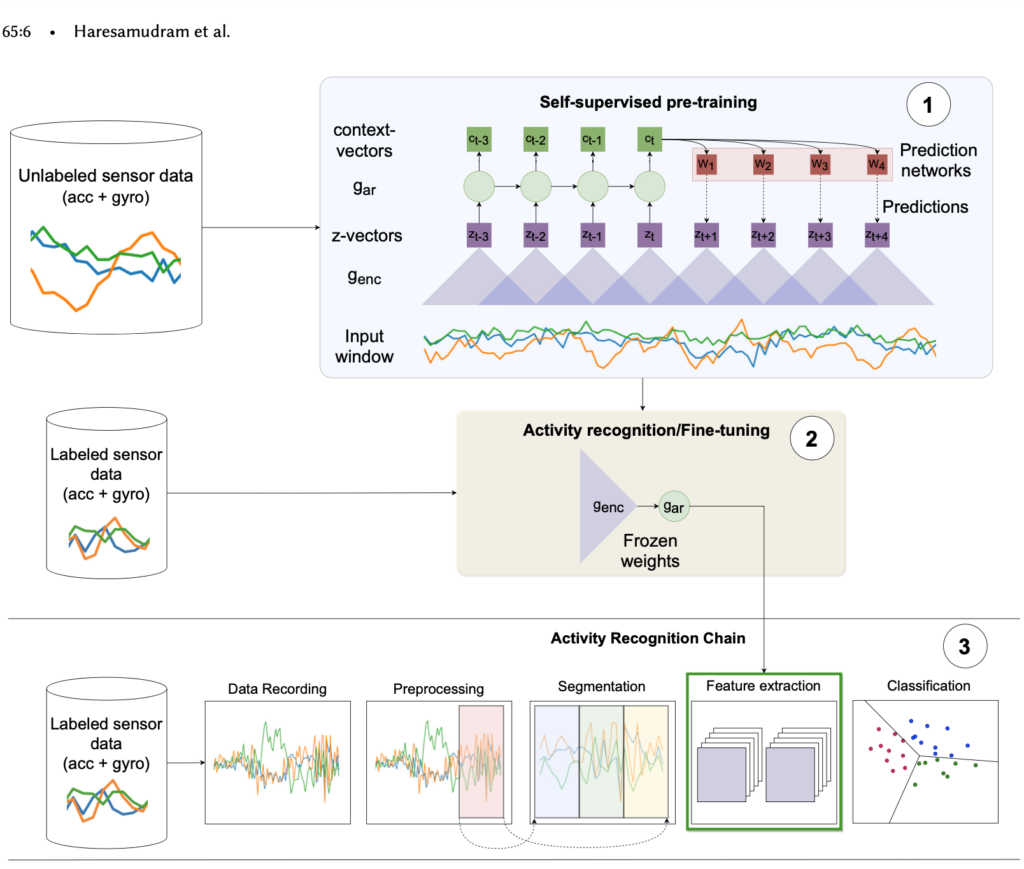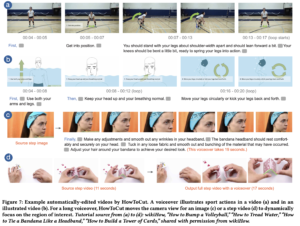Paper in IMWUT 2021 on “Contrastive Predictive Coding for Human Activity Recognition”
Citation
Abstract
Feature extraction is crucial for human activity recognition (HAR) using body-worn movement sensors. Recently, learned representations have been used successfully, offering promising alternatives to manually engineered features. Our work focuses on effective use of small amounts of labeled data and the opportunistic exploitation of unlabeled data that are straightforward to collect in mobile and ubiquitous computing scenarios. We hypothesize and demonstrate that explicitly considering the temporality of sensor data at representation level plays an important role for effective HAR in challenging scenarios. We introduce the Contrastive Predictive Coding (CPC) framework to human activity recognition, which captures the long-term temporal structure of sensor data streams. Through a range of experimental evaluations on real-life recognition tasks, we demonstrate its effectiveness for improved HAR. CPC-based pre-training is self-supervised, and the resulting learned representations can be integrated into standard activity chains. It leads to significantly improved recognition performance when only small amounts of labeled training data are available, thereby demonstrating the practical value of our approach.

Links
BibTeX (Download)
@article{2021-Haresamudram-CPCHAR,
title = {Contrastive Predictive Coding for Human Activity Recognition},
author = {Harish Haresamudram and Irfan Essa and Thomas Ploetz},
url = {https://doi.org/10.1145/3463506
https://arxiv.org/abs/2012.05333},
doi = {10.1145/3463506},
year = {2021},
date = {2021-06-01},
urldate = {2021-06-01},
booktitle = {Proceedings of the ACM on Interactive, Mobile, Wearable and Ubiquitous Technologies},
journal = {Proceedings of the ACM on Interactive, Mobile, Wearable and Ubiquitous Technologies},
volume = {5},
number = {2},
pages = {1--26},
abstract = {Feature extraction is crucial for human activity recognition (HAR) using body-worn movement sensors. Recently, learned representations have been used successfully, offering promising alternatives to manually engineered features. Our work focuses on effective use of small amounts of labeled data and the opportunistic exploitation of unlabeled data that are straightforward to collect in mobile and ubiquitous computing scenarios. We hypothesize and demonstrate that explicitly considering the temporality of sensor data at representation level plays an important role for effective HAR in challenging scenarios. We introduce the Contrastive Predictive Coding (CPC) framework to human activity recognition, which captures the long-term temporal structure of sensor data streams. Through a range of experimental evaluations on real-life recognition tasks, we demonstrate its effectiveness for improved HAR. CPC-based pre-training is self-supervised, and the resulting learned representations can be integrated into standard activity chains. It leads to significantly improved recognition performance when only small amounts of labeled training data are available, thereby demonstrating the practical value of our approach.},
keywords = {activity recognition, IMWUT, machine learning, ubiquitous computing},
pubstate = {published},
tppubtype = {article}
}

